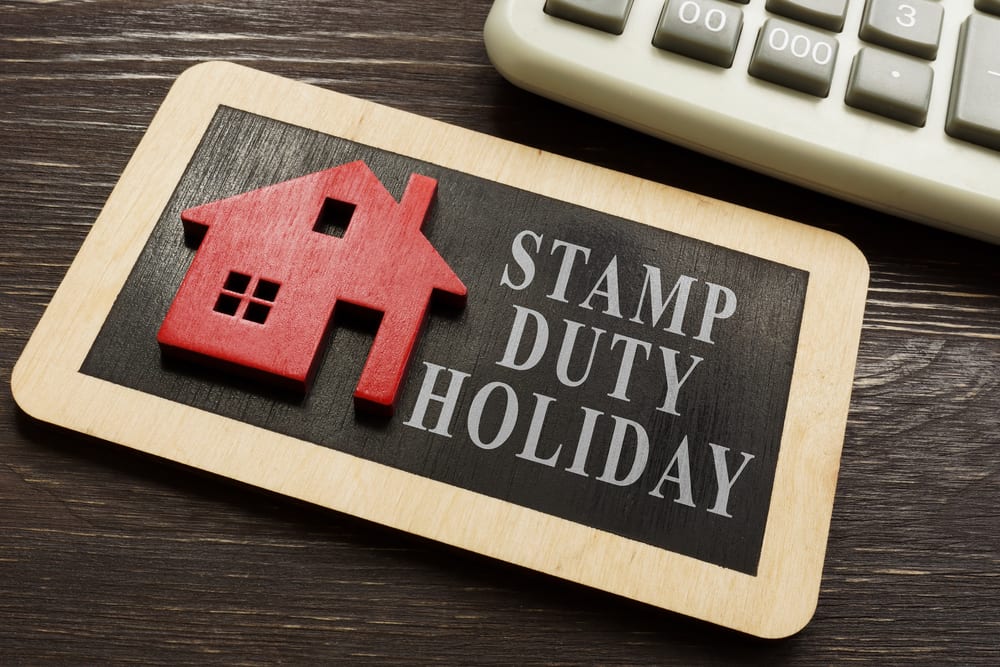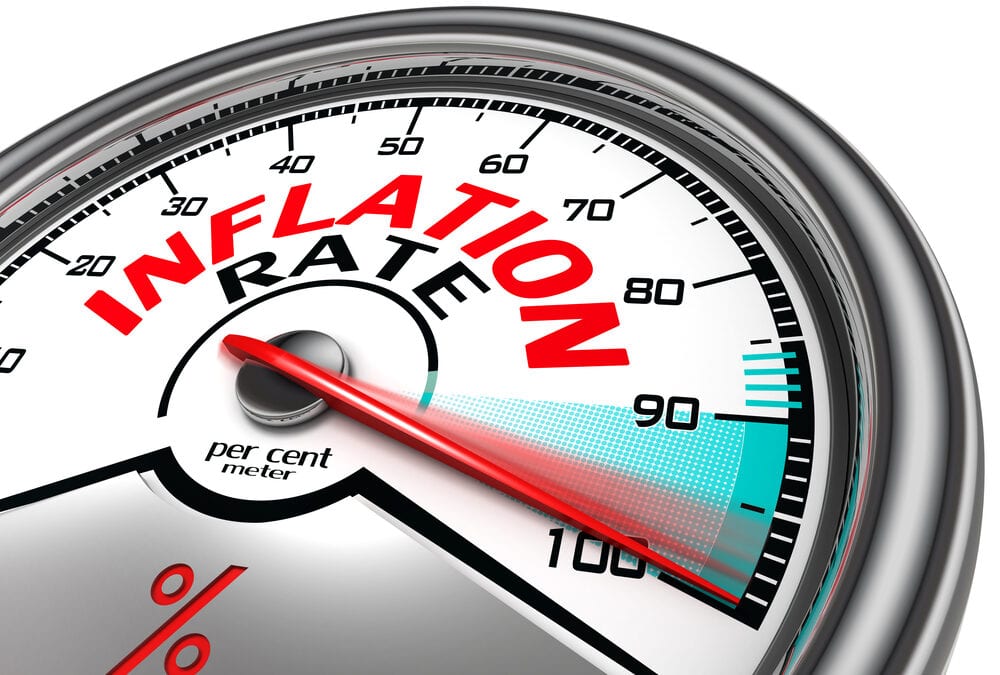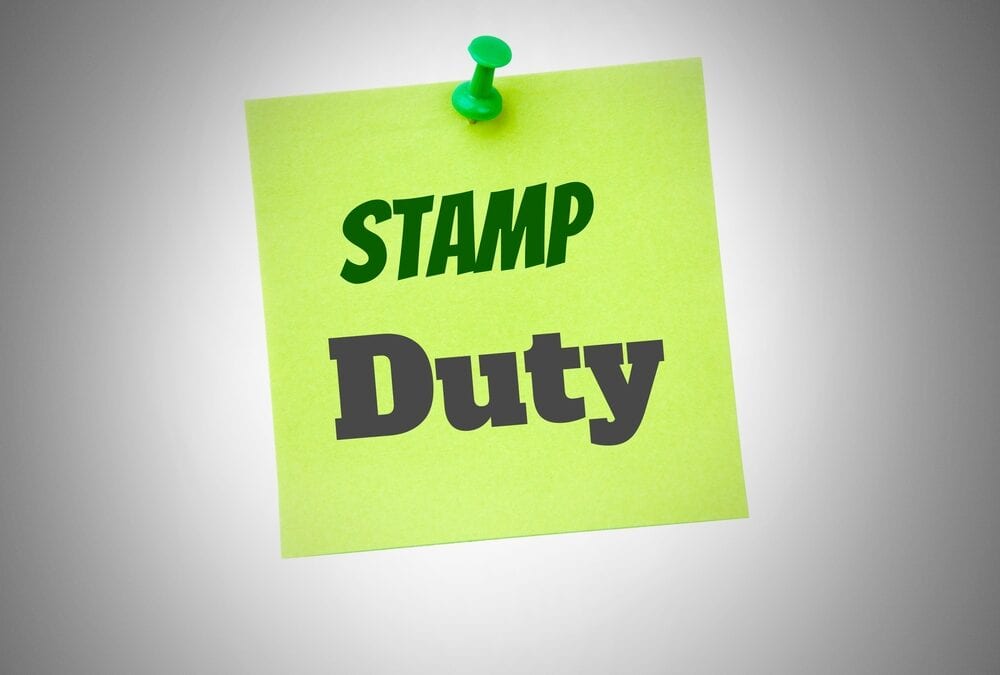
by admin | Jun 26, 2021 | Mortgage News
Barring any major surprises, it now really is the final countdown for the Stamp Duty holiday. Regardless of whether you’re a seller, a buyer, or both, organization will help you meet (or even beat) that deadline. Here are some tips to help.
If you’re selling and don’t have any offers
If you’re selling and you (still) don’t have any offers then you need to up your marketing game quickly. To begin with, make sure that your listing shows potential buyers everything that might interest them. Show and tell. In other words, make sure you have plenty of pictures and/or video as well as informative text.
In particular, highlight your ability and willingness to meet the Stamp Duty deadline. For example, mention the fact that you have already organized the necessary documentation. If you’re definitely moving, no matter what, mention that too. It shows buyers you’re serious.
Remember, you don’t have to stop at the options supported by the property portals and/or your estate agent’s website. For example, you could host a virtual home tour on YouTube (keep security in mind). You could also create videos to highlight the best features of your local area. In fact, you may not have to create them, you might be able to find them online.
You might also want to consider creating a website for your home. There are sites that will allow you to host a very basic website for free. You won’t get your own domain or any advanced functionality but you don’t need them.
If you’re selling and do have offers
Assuming you have more than one offer, choose your buyer astutely. In simple terms, the buyer who offers the highest price may not be the one with the best chance of making good on that offer. If your top priority is to beat the Stamp Duty deadline then you might want to play safe and go for reliability even if the buyer does offer a lower price.
Of course, in order for you to make an informed decision of any sort, you’ll need to know your buyers’ situations. If you’re working with a high-quality estate agent, they will take care of this for you and tell you everything you need to know. If you’re selling yourself then you’ll need to quiz customers yourself.
Online selling portals can be a bit of a grey area. Many of them now offer add-on services such as assistance from real-world sales agents. That said, you’ll have to do your own research on the quality of the service you can expect.
If you’re buying
If you’re buying then do your best to work with a seller who’s also motivated to help you beat the Stamp Duty deadline. Then make sure you do everything you can on your side to speed the process to completion. Here are three specific tips.
Get preapproved for a mortgage
For clarity, being approved for a mortgage “in principle” does not mean that a lender is committing to lending you up to that amount on any property. It is, however, useful guidance on how much you can borrow. As such, it is reassurance for a seller. It can also shorten the time needed for your eventual mortgage to be finalized.
Supercharge your mortgage application
From a buyer’s perspective, there are basically two parts to a mortgage application. The first is choosing your lender. The second is making the actual application. There is a third part, namely the approval process.
That happens at the lender’s side. As a buyer, however, you can speed it along by choosing the right lender and applying in the right way. A mortgage broker may be able to help with both points.
If you choose to apply directly, do your research very thoroughly and make sure you complete the application form exactly as you should. This may sound like stating the obvious but these documents can be lengthy and complex.
Get organized for conveyancing
Choose a conveyancer and be prepared to pay for quality and speed. Reviews my help here. Check that your preferred conveyancer works with your lender and see if they are a member of the conveyancing quality scheme.
Think carefully before securing other debts against your home. Your home may be repossessed if you do not keep up repayments on your mortgage
Please contact us for any more information.

by admin | Jun 11, 2021 | Mortgage News
According to the Office for National Statistics, UK inflation more than doubled from March (0.7%) to April (1.5%). At any other time, this data might have been met with gasps of pure horror. Right now, however, the situation is a lot more complicated. Here’s a quick guide to what you need to know.
The world is finally getting back to business
COVID19 is not yet consigned to oblivion but it’s getting there. This is allowing the world, in general, to get back to business. Of course, with so many businesses having been mothballed for most, if not all, of the last year or so, there’s a lot of catching up to do. In particular, the logistics industry needs to deal with a serious backlog – and the recent issue with the Suez Canal didn’t help with that.
This means that right now supply-side issues are limiting the availability of some items right at a time when demand is increasing. Businesses are opening up again, so more jobs are becoming available. Furloughed workers are returning and remote workers are starting to go back to the office at least part of the time. In some cases at least, this will mean them spending money on purchases such as clothes, transport and convenience food and drink.
Overall, therefore, it’s hardly a surprise that UK inflation has shot up. In fact, it would arguably have been more of a surprise if it hadn’t. That doesn’t mean that the increase is welcome news to everyone. As always, there are two sides to every story.
Why inflation is bad news
Inflation basically means rising prices. If you’re in strong economic shape, then you can absorb them. If, however, you’re not, then they can be extremely painful. The financial impact of the pandemic has been extremely uneven, to put it mildly. A few people have, quite bluntly, done extremely well out of it. Most people have been able to get by, albeit possibly only just.
For some people, however, the pandemic has wrought serious havoc on their finances. What’s more, a lot of these people would probably have been living on the financial edge anyway. These people may have to deal with prices rising ahead of their income. They may also face the prospect of interest rates rising in line with inflation. This would make using credit as a stopgap even more expensive.
If interest rates do go up, then the cost of mortgages may go up with them. This is, however, also variable, at least in the short term. If new buyers have opted for fixed-interest loans then interest-rate changes will not affect them until the fixed-term runs out. Established buyers with variable-interest loans could switch to a new deal. Those most in danger, therefore, are recent buyers with variable-rate loans.
Why inflation is good news
Inflation encourages people to get out and spend. In short, the message is that you can either buy now or risk the price going up later. Obviously, there are limits to this. If people can’t afford something now then they can’t buy it regardless of whether or not it seems like a good deal. What’s more, if inflation gets seriously out of control then it may result in major social upheaval.
The UK is, however, a long way off this. Although 1.5% is way above 0.7%, it’s still comfortably below the Bank of England’s inflation target of 2% with a 1% margin of error in either direction. In fact, 0.7% inflation was actually too low to be desirable. Under normal circumstances, the Bank of England would have been expected to take corrective action.
In short, therefore, the surge in inflation is essentially just a sign that the UK’s economy is starting to get back to where it should be. That fact should be welcomed by everyone.
Think carefully before securing other debts against your home. Your home may be repossessed if you do not keep up
repayments on your mortgage
Please contact us for any more information

by admin | May 7, 2021 | Mortgage News
When it comes to housing deposits, bigger is better. That said, it’s also important not to overstretch yourself. Here are some points to consider when figuring out how much deposit you can really afford.
What are your overall moving costs?
As a buyer, here are some of the main costs you should consider when moving home:
- Travel to view homes
- Surveying fees
- Conveyancing fees
- Mortgage-administration fees
- Home-moving fees
You’ll also need to think about necessary updates, maintenance and running costs in your new home. Keep in mind that any existing services you use may change their price to reflect your house move. You may also find that some of your existing possessions aren’t suitable for your new home.
In addition to all of the above, it’s advisable to allow yourself a bit of financial “breathing space”. This can give you a bit of room to manoeuvre when life happens. It can also ease your transition into your new home. For example, if you’ve spent a day painting, you may not fancy cooking so you might get a takeaway instead. This can increase your food spend.
What is your financial outlook for the future?
If you want a mortgage, you’re going to need to convince your lender that you can afford it. Separately to that, you, personally, need to think about your financial outlook for the future. In basic terms, there are three questions you need to answer.
Firstly, how much income can you reasonably expect to earn over the next five years or so? Secondly, how do you anticipate that income coming in? For example, will you have a consistent monthly salary or do you expect your income to go up and down? Thirdly, what factors will influence your finances? For example, are there any major life events coming up?
The answers to these questions will help you decide what level of savings you need. This in turn will guide you as to how much money you can afford to put towards buying a new home. Remember, however, that the cost of buying a new home goes beyond the deposit. Per the previous comments, resist any temptation to overstretch yourself.
How much money can you afford to put away now?
If you plan to save for your deposit via instant-access savings accounts, then, by definition, you’ll be able to access your money if you need it. If, however, you plan to use some other route, for example, bonds or the stock market, then you may have to lock your money away for a time. What’s more, if you go down the investment route, you put your capital at risk.
Even if you’re using instant-access savings accounts, you may find it easier to make plans if you have a realistic idea of how much of your savings you can keep over the long-term. Obviously, even the best-laid plans can be derailed by what life has in store. That said, you can mitigate this risk by making sure that you have appropriate insurance cover.
In the real world, saving up for a deposit (or anything else) is partly a matter of income and partly a matter of focus. Your income will determine how much of a surplus you have after paying your essential expenses. Your level of focus will determine how much of your disposable income goes toward your deposit.
Keep in mind that building a deposit is an exercise in financial management. It’s not a race. There are no prizes for getting to the “finish line” before anyone else. You just have to decide for yourself how much you want to save for a house versus how much you want to use your money in other ways.
Please contact us for any more information.
Think carefully before securing other debts against your home. Your home may be repossessed if you do not keep up repayments on your mortgage
For savings and investments, we act as introducers only

by admin | Apr 23, 2021 | Mortgage News
Desperate times call for desperate measures. The COVID19 pandemic called for the government to take strong actions. One of those actions was the Stamp Duty holiday. Now that it has been in place for six months, its impact can be assessed. In short, people can now ask whether or not it was (and still is) a good idea.
The housing market since March 2020
Lockdown one was horrendous news for just about every sector of the UK’s economy. The property sector was particularly hard hit. Spring is the property market’s “festive season”. It’s when buyers shake off their winter slumbers and start house-hunting. There is generally a lull in summer followed by an uplift in autumn and then winter hibernation.
It would have been bad enough if lockdown one had lasted three weeks as originally announced. Instead, however, it dragged on until July. If the property market had followed its usual cycle, the property market could have had a six-month slump. Instead, the government stepped in with the Stamp Duty holiday.
Since then, overall, the only way has been up. According to data from the Halifax, house prices in March 2021 were 6.5% higher than in March 2020. To put that in figures, the average house has gone from costing £239,176 to costing £254,606. That’s an increase of almost £1.3K per month over the last 12 months.
The impact of the Stamp Duty holiday
The Stamp Duty holiday still has another 6 months to run (of which three will be at a reduced discount). It’s therefore too early even to attempt a full cost/benefit analysis. It’s also impossible to know what would have happened if the Chancellor hadn’t offered the tax break.
The housing market could have gone into a six-month downturn but then picked up again in autumn as usual. That said, lockdown two and tiered restrictions might have made this more difficult. Without any unusual motivation, buyers might just have decided to wait out both COVID19 and Brexit and reassess at a later date.
If that had happened, it could have serious repercussions for the housing market. With minimal buyer demand, sellers would have faced the prospect of lengthy sales times and/or lower sales prices. A slowdown in the property market would, of course, have impacted everyone connected with it and that’s a lot of people.
The real estate sector is not just a major source of direct employment. It also generates significant activity in many other sectors. In fact, during the lockdown, home-related businesses which were able to keep going did great business as people worked on improving their homes.
So was the Stamp Duty holiday really a good idea?
Perhaps it would be fair to say that the Stamp Duty holiday was, in principle, a good idea. It just wasn’t implemented as well as it could have been. For example, the Chancellor could have tapered the relief according to the price of the home. He could also have offered some sort of extra benefit to first-time buyers so that they kept an advantage over onward movers.
He could also have based the relief on the exchange date rather than the completion date. Admittedly, he would probably have had to put some kind of deadline on completion. This could, however, have been made fairly generous to allow for COVID19-related delays.
This last point would have helped to avoid buyers finding themselves pushed towards a “cliff-edge”. The government has now lengthened the journey to the edge and made the landing slightly smoother. At the end of the day, however, buyers are still going to be looking at two fairly steep tax changes coming up in 2021.
Think carefully before securing other debts against your home. Your home may be repossessed if you do not keep up repayments on your mortgage

by admin | Apr 18, 2021 | Mortgage News
If you don’t like the term “haggling”, think of it as “negotiation”. That’s essentially what it is. In simple terms, the seller (or their agent), is trying to achieve the highest possible price for their home. You are trying to achieve the lowest possible price for the property. This is not about “win/lose”. It’s about reaching an agreement. Here are some tips to help.
Prepare thoroughly
Guide prices are a guide to what a seller (or their agent) wants for the property. You should therefore regard them as sources of information rather than as instructions. What you really need to know is the state of the local market and the seller’s situation. You can find out a lot about the first point with some thorough digging around the internet.
The key point to understand is that you need recent, local data. Recent data tells you what the market is doing now, not what it did in the past. Local data tells you how the market is performing in the locations which interest you. To take an extreme example, there’s no real point in looking up data from London if you want to buy property in Aberdeen.
In fact, if you’re looking at buying in a city, then you want data at local-authority level if not postcode level. Be aware that there can be significant differences in property prices in different areas of a city. You need to be sure that you’re comparing like with like.
Get preapproved for a mortgage
If you need a mortgage, then get preapproved for one. This marks you out as a serious buyer and reassures sellers. Think about whether or not there are any other steps you could take to make a seller’s life easier. For example, can you be flexible with your move date?
Understand the seller
It’s always safer to deal with a seller who has a clear reason to move. This reduces the chances of them pulling out of the sale, leaving you high and dry (and possibly out of pocket). The more motivated a seller is to move, the more chance there is that they will be willing to accept a lower price in return for a quick and convenient sale.
There are, however, a couple of caveats here. Firstly, a seller may have a baseline price below which they cannot, or just will not, go. For example, they may need (or just want) enough to clear their mortgage. Secondly, the more competition there is for a property, the more likely it is that someone else will offer both a higher price and a quick and convenient sale.
Keep a clear head
Until the sale is complete, in fact, arguably until you’ve moved in, you’re buying a property. It may be someone else’s home, but it is not yours. Keep that in mind at all times.
Obviously, you should only be looking at properties where you would be happy to live. You must, however, avoid getting emotionally attached to them. Your attitude needs to be that you want a good deal for your money and will go on looking until you get one.
If any given property is out of your budget (or just overpriced) and the seller is not prepared to reduce the price, then just move on. If you really liked the property, then keep an eye on the listing. If the seller does not get a sale, they might become more flexible on price further down the line.
By the same token, however, be careful about focussing so much on getting a bargain that you lose out on a great property you could have afforded.
Think carefully before securing other debts against your home. Your home may be repossessed if you do not keep up repayments on your mortgage
Please contact us for any more information.

by admin | Apr 16, 2021 | Mortgage News
Vaccines are being rolled out and spring is rolling in. That’s two reasons for there to be good cheer throughout the UK. Will this mean good cheer for the property market? Here are some factors to consider.
The economy should be reopening
All four parts of the UK have mapped out plans to exit lockdown. Admittedly those plans will depend on circumstances. In principle, there could be halts and even backwards steps before the UK emerges from the pandemic. Overall, however, the general direction of travel should be very clearly towards a post-lockdown “new normal”.
Reopening the economy should have the very practical benefit of improving housing affordability. Of course, it would be unrealistic to expect too much too soon. It’s reasonable to assume that some sectors and job areas will recover more quickly than others. In blunt terms, the less a sector has been hurt, the quicker it will recover.
That said, as sectors recover, the benefits of recovery should begin to spread. For example, as people get their jobs back they will have more disposable income. This can then be spent at other businesses.
People will have clarity on remote working
Companies are going to have to decide whether or not they’re going to support remote working over the long term. This doesn’t necessarily have to mean full-time remote working. Even companies deciding to offer flexible/hybrid working could have a meaningful impact on the housing market.
In simple terms, if remote working goes mainstream, cities and traditional commuter-belt areas could lose their appeal. They could be overtaken by areas where people can afford more space (inside and outside). These areas could have longer commutes, but if people are making them less often this could be an acceptable trade-off.
The Stamp Duty holiday is still on
New buyers might have to more very quickly indeed if they want to get the full benefit of the Stamp Duty holiday. That said, it’s not entirely impossible. If sellers are prepared and conveyancers are available and everything goes smoothly it could be done.
Even if they miss out on the full discount, however, there is still the “consolation prize” of a lower discount available for three months after the main holiday ends. What’s more, if the Chancellor then puts Stamp Duty back as it was, then first-time buyers will still benefit from reduced Stamp Duty after the end of the temporary tax break.
Help to Buy has been extended
This isn’t exactly news, but it’s still relevant. The initial Help to Buy scheme has been extended to counterbalance delays caused by COVID19. The new Help to Buy scheme will be implemented as planned. The government has also outlined an initiative to provide guarantees for 95% mortgages. This is, however, still in the pipeline.
Interest rates remain an open question
The Bank of England advised banks to prepare for the possibility of negative interest rates. Of course, that’s not at all the same as saying that they will actually happen. It is, however, making the point that they cannot be ruled out. Although negative interest rates are not at all a new concept, they would be new to the UK. Hence it’s anyone’s guess what their impact would be.
At the same time, interest-rate increases cannot be ruled out either. Obviously, if interest rates go up, then this could reduce affordability. That said, if interest rates were going up as a result of strong economic growth, the end result could still be positive.
The housing supply is unclear
Buyers need there to be sellers. Currently, it’s unclear how much new-build and existing property will be on the market this spring. Lack of supply could put a damper on the housing market. It could, however, alternatively lead to fewer transactions of higher value.
Your property may be repossessed if you do not keep up repayments on your mortgage.
For more mortgage information please contact us







Recent Comments